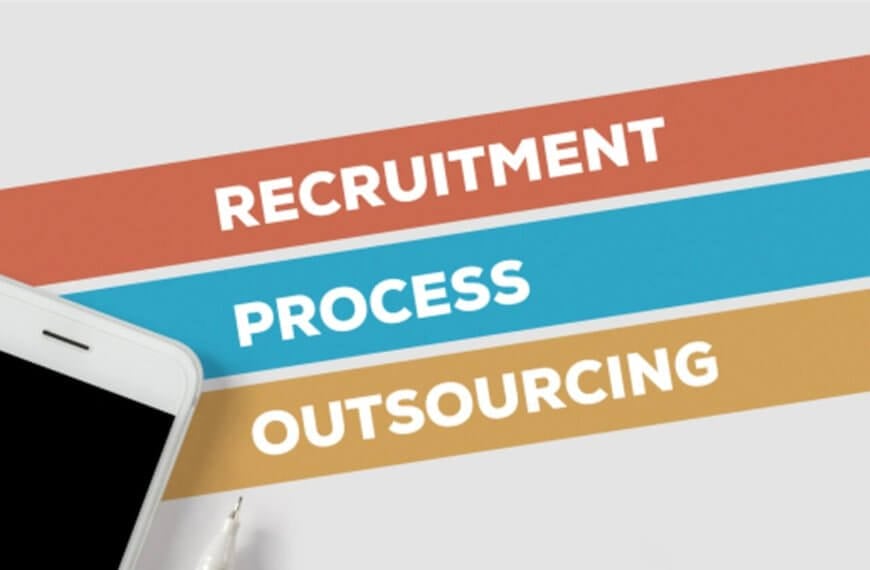What is the Intermittent Fasting and the 16:8 diet?
The 16:8 diet is an extreme version of the 5:2 diet. You spend 16 hours of each 24 hour period without any solid food. During the other 8 hours, you eat healthy meals and snacks. This diet is very strict, and most people who try it fail because they get hungry too quickly.Fasting is an ancient practice that dates back thousands of years. Our ancestors were hunter-gatherers who ate when they could catch food and slept when they couldn’t. Intermittent fasting is similar to how our ancestors ate. It’s a great way to lose weight, but only if you can stick with it for more than a few days.
How does the 16:8 Diet Work?
The 16:8 diet helps people lose weight by helping them burn more calories than they consume. Metabolic switching occurs naturally after hours without food. When this happens, the body switches to using ketones instead of glucose for energy. Ketones are stored in fat cells, and when the body burns these fat cells, it decreases overall weight. Intermittent Fasting works by pushing the body into a calorie-deficit state. This causes the body to use stored fats instead of sugars. This makes the body release hormones that cause the body to burn more calories while resting or sleeping. Intermittent fasting also speeds up metabolism. It increases your metabolism by 14%. When exercising, intermittent fasting helps increase muscle mass and endurance.
Why do I need to fast?
When we’re not eating, our bodies are burning fat as fuel. When we don’t eat anything for about 16 hours, our body starts using stored fat instead of muscle or bone mass. By doing this, we’ll be losing weight faster.
How does intermittent fasting work?
When you fast, your body stops burning calories. Instead, it uses up its energy stores (fat) to keep you alive until you start eating again. As long as you have enough fat in your body, you won’t feel hungry.
Fasting also helps you burn more calories during the day by increasing your metabolism.
You may want to try intermittent fasting after a workout, so your muscles will use up their glycogen stores and then replenish themselves.
Can I still exercise while on the diet?
Yes! Exercise burns calories even when you aren’t eating. If you want to burn more calories, you should combine exercise with intermittent fasting.
Don’t forget to drink plenty of water while exercising.
If you’re trying to lose weight, you’ll probably need to cut down on alcohol consumption. Alcohol increases your appetite, which makes you crave more food.
If you’re looking to gain muscle, you should avoid protein shakes and supplements. Protein shakes contain large amounts of carbohydrates and sugar. They’re best used before working out, not during.
Is there any scientific evidence supporting intermittent fasting?
There are many studies showing that intermittent fasting has health benefits such as reducing blood pressure, cholesterol levels, insulin resistance, and inflammation.
It’s been shown to help increase longevity and reduce cancer risk.
It’s also been proven effective at helping diabetics control their condition.
Intermittent fasting isn’t recommended for everyone though. Those who have diabetes, heart disease, high blood pressure, kidney problems, thyroid conditions, or certain types of cancers shouldn’t try it.
Is 16:8 fasting good for weight loss?
People who fast intermittently lose weight because they eat less. But studies show that most people who do this also eat more unhealthy foods. Fasting may be useful but it doesn’t work well as a long term solution. Dieters who follow a 16:8 fast may be more likely to stick to their diets than those following traditional meal plans. Fasting may help people with high blood pressure by improving glucose metabolism.
What Can I eat on 16:8 diet?
The great thing about the 16/8 diet is that you’re allowed to eat anything you want. Within reason. It’s important that you choose whole foods and those with higher levels of vitamins during the eating period, as well as making sure you’re getting enough calories, macronutrients (protein, carbs, fat), and micronutrients (vitamins, minerals).
Here are some guidelines for what you can eat on 16:8:
Breakfast – You can eat whatever you like. Breakfast is usually the easiest part of the day.
Lunch – Eat whatever you want. This is where you get creative.
Dinner – The same rules apply as lunch.
Snacks – Snacking is fine, but make them healthy snacks.
Drinks – Water is essential. Other drinks include coffee, tea, soda, juice, etc.
How much time should I spend in between meals?
You don’t have to skip meals completely. You just need to eat within an 8 hour window. So if you normally eat breakfast at 7am, lunch at 12pm, dinner at 6pm, then you’d only be able to eat from 1-9pm. That would leave you with 3 hours to snack.
What are Intermittent Fasting Benefits?
Fasting is one of the oldest methods of dieting. People have been fasting for thousands of years, and there are many different types of intermittent fasting diets out there.
Intermittent fasting is a type of diet where people eat normally most of the time, but fast intermittently. This means that they don’t eat anything for several hours each day.
There are many health benefits associated with intermittent fasting. Here are three of the top ones:
1. It Can Improve Blood Sugar Levels
Many studies show that intermittent fasting can improve blood sugar levels. One study found that after 12 weeks of intermittent fasting, participants had improved insulin sensitivity and reduced inflammation. Another study showed that intermittent fasting helped diabetics control their blood sugar levels better than traditional diets.
2. It Helps With Weight Loss
Studies suggest that intermittent fasting can help with weight loss. A review published in the journal Nutrients found that intermittent fasting was effective for weight loss. The researchers concluded that intermittent fasting could be used as a safe alternative to conventional diets for weight loss.
3. It May Reduce Stress
A study published in the Journal of Clinical Nutrition found that intermittent fasting may help reduce stress. Researchers studied the effects of intermittent fasting on the cortisol levels of women. Cortisol is a hormone released by the adrenal glands that helps regulate our stress response.
The researchers found that intermittent fasting lowered cortisol levels. They concluded that this could be due to the fact that intermittent fasting reduces hunger pangs, which makes us feel calmer.
4. It May Help Prevent Cancer
Some research shows that intermittent fasting may prevent cancer. In one study, mice were fed an intermittent fasting diet for two weeks before being injected with carcinogens. After four weeks, the mice that ate the intermittent fasting diet had fewer tumors than those who didn’t.
5. It May Lower Risk Of Diabetes
Research suggests that intermittent fasting may lower the risk of diabetes. A study published in the American Journal of Physiology found that intermittent fasting increased insulin sensitivity in rats. Insulin sensitivity refers to the ability of cells to respond to insulin.
When cells become resistant to insulin, it’s called insulin resistance. Insulin resistance is a major factor in the development of Type 2 diabetes.
6. It May Increase Life Span
Some research suggests that intermittent fasting may increase life span. An animal study published in Cell Metabolism found that intermittent fasting increased longevity in mice. Mice that ate the intermittent fasting meal lived longer than mice that ate the standard diet.
7. It May Protect Against Heart Disease
Another study found that intermittent fasting may protect against heart disease. Researchers studied the effects intermittent fasting has on cholesterol levels. They found that intermittent fasting decreased total cholesterol and LDL (bad) cholesterol levels.
8. It May Boost Brain Function
A study published in Frontiers in Aging Neuroscience found that intermittent fasting may boost brain function. Scientists studied the effects of intermittent feeding on the brains of mice. They found that intermittent feeding increased the number of new neurons in the hippocampus region of the mouse brain.
9. It May Make You More Energetic
One study found that intermittent fasting made people more energetic. Participants in the study ate normally during the first half of the day, then fasted for 16 hours. During the second half of the day, they ate normally again.
After six months, the participants reported feeling less tired and having more energy.
10. It May Help You with Obesity
A study published in Obesity suggested that intermittent fasting may help you lose weight. Researchers studied the effects that intermittent fasting has on appetite hormones. They found that intermittent eating decreases ghrelin, a hormone that stimulates appetite, while increasing leptin, a hormone that signals satiety or fullness.
11. It May Improve Your Mood
Intermittent fasting may improve your mood. Research from The University of Chicago showed that intermittent fasting can reduce stress-induced cortisol secretion. Cortisol is a hormone released by your adrenal glands when you’re stressed out. When cortisol levels rise, they cause fatigue, irritability, and other symptoms associated with depression.
12. It May Reduce Inflammation
Intermittent Fasting may reduce inflammation. One study found that intermittent fasting reduced markers of inflammation in obese women. These markers include C-reactive protein and interleukin 6.
13. It May Increase Life Span
Intermittent feeding may increase your lifespan. A study published in Nature Medicine found that intermittent fasting increases the lifespan of yeast cells. Yeast cells are simple organisms that have many similarities to human cells. This suggests that intermittent fasting may also extend the lifespan of humans.
Diet, diet, diet
Sakit sa ulo diba? The rewards are endless and it is the whole family that benefits in the long term!
Live a Healthy balanced life
Healthy living isn’t always fun or exciting. In fact, it can be downright boring at times. But the benefits of being fit and healthy far outweigh the drawbacks. What are some ways to get started?
Health experts agree that a healthy lifestyle is important for everyone. But why should you care? The answer lies in the long term. Being healthy now means having fewer health problems later in life. And who wants to spend their golden years dealing with chronic illnesses?
There are plenty of reasons to adopt a healthier lifestyle. From improving your overall well-being to reducing your risk of disease, a healthy lifestyle can benefit anyone. Live life, live long, love more!
























